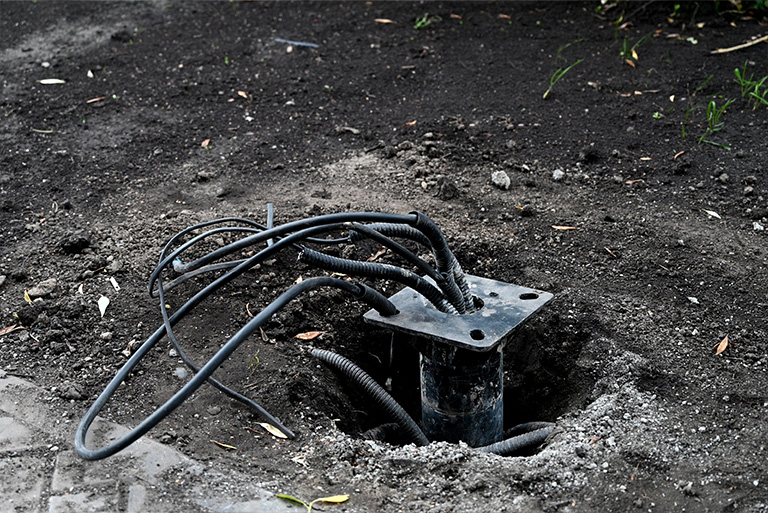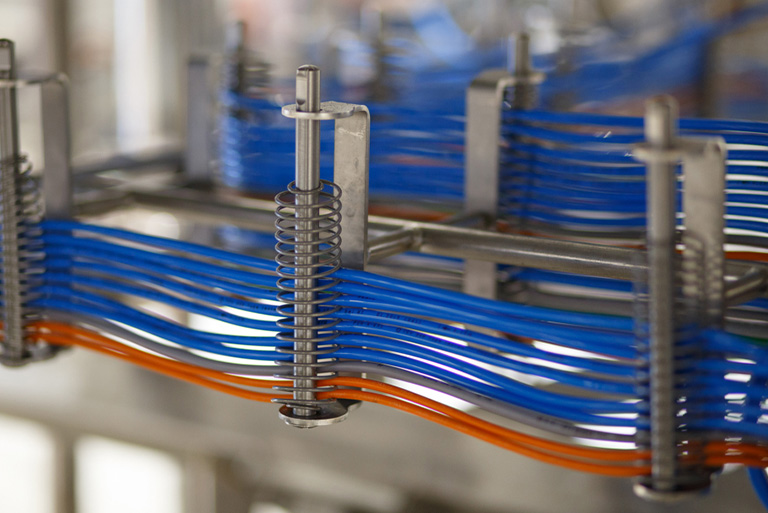As industries grow and global energy demands rise, the need for energy efficiency has become a primary focus for businesses across all sectors. Energy efficiency isn’t just about reducing utility bills; it’s about optimizing resources, lowering operational costs, and minimizing environmental impact. For industries with high energy demands, addressing power quality and conducting energy audits can lead to significant improvements in overall efficiency and performance. This blog post explores the critical role that power quality and energy audits play in driving industrial energy efficiency and why they’re essential for any forward-thinking operation.
Understanding Power Quality and Its Impact on Industrial Efficiency
Power quality refers to the stability and consistency of electrical power supplied to industrial equipment. In an ideal scenario, electrical power flows smoothly, with stable voltage levels and minimal interference. However, in reality, power quality issues such as voltage fluctuations, harmonics, power surges, and outages can disrupt operations, damage equipment, and result in costly downtime.
Voltage Sags and Surges
Variations in voltage can cause equipment malfunctions, reduce motor efficiency, and lead to overheating. Even a minor voltage sag can cause sensitive equipment to shut down or operate below optimal levels, while surges may damage or shorten equipment life.Harmonics
Harmonics are distortions in the electrical waveform caused by certain types of equipment, such as variable speed drives and heavy machinery. When harmonics are present, they increase the heat in equipment, leading to reduced efficiency and increased energy costs.Transient Spikes
Transient spikes are sudden, short-duration increases in voltage. These can be caused by lightning strikes or switching operations and may lead to severe equipment damage, loss of data, and interrupted production.

Maintaining high power quality is crucial for industrial energy efficiency. By managing power quality, companies can prevent equipment issues, reduce maintenance costs, and ensure continuous, smooth operations. A key strategy for addressing power quality issues is conducting a thorough energy audit.
What is an Energy Audit?
An energy audit is a systematic examination of energy flows and consumption patterns within an industrial facility. It identifies areas where energy is being wasted or used inefficiently and provides actionable insights for improvement. Typically, energy audits are conducted in stages:
Preliminary Audit (Walk-Through Analysis)
This is a high-level inspection of the facility to identify obvious areas of energy wastage and assess power quality conditions. This stage helps prioritize which equipment or areas require more detailed analysis.Detailed Energy Audit
A comprehensive analysis that includes data collection and measurement. The audit examines equipment performance, power quality, load management, and other factors. This stage also provides specific recommendations for energy efficiency measures, such as installing power quality monitoring equipment or optimizing motor performance.Investment-Grade Audit
This audit is typically conducted if an organization plans to make significant investments in energy efficiency. It involves a more in-depth financial analysis of the potential savings from recommended measures, helping justify the ROI for these improvements.
The Benefits of Power Quality and Energy Audits for Industrial Operations
Conducting energy audits and monitoring power quality offers numerous benefits for industries striving to improve their energy efficiency:
Reduced Operational Costs
By identifying areas where energy is wasted, energy audits help industries lower their energy bills. Improved power quality also reduces equipment strain, minimizing repair and replacement costs.Enhanced Equipment Life and Performance
Equipment subject to power quality issues like voltage fluctuations and harmonics tends to degrade faster. When power quality is improved, equipment lasts longer and performs more reliably, reducing unplanned downtime and boosting productivity.Optimized Load Management
Energy audits often reveal opportunities for load management, such as scheduling heavy equipment use during off-peak times. This reduces the facility’s peak demand charges and helps balance power loads, minimizing strain on equipment.Improved Compliance and Reporting
Many industries are subject to energy efficiency and environmental standards. By implementing audit recommendations, companies can meet compliance requirements more easily and improve their sustainability reporting.Enhanced Workplace Safety
Poor power quality can lead to unsafe conditions, especially when equipment malfunctions. By improving power quality, companies reduce the risk of electrical hazards, creating a safer workplace for employees.Environmental Impact
Energy efficiency translates to lower greenhouse gas emissions and a smaller carbon footprint. By addressing power quality and following audit recommendations, industries contribute to environmental sustainability and may qualify for incentives or certifications related to green practices.
Practical Steps for Improving Power Quality and Energy Efficiency
Install Power Quality Monitoring Systems
Power quality monitoring systems detect fluctuations, harmonics, and other disturbances in real time. By analyzing this data, industries can take corrective actions before issues escalate. Some systems even provide predictive maintenance insights, which can help in planning proactive equipment servicing.Use Power Factor Correction Equipment
Power factor correction equipment, such as capacitors, improves the efficiency of electrical systems by minimizing reactive power. This reduces energy losses, lowers electricity costs, and helps industries avoid additional charges from utility companies for low power factors.Implement Voltage Regulators and Surge Protectors
Installing voltage regulators stabilizes power levels, protecting sensitive equipment from damage due to fluctuations. Surge protectors further shield equipment from sudden power spikes, preserving equipment integrity and extending lifespan.Optimize Motor Efficiency
Motors are some of the most energy-intensive equipment in industrial facilities. By optimizing motor speed, using high-efficiency models, and ensuring regular maintenance, industries can significantly improve their energy efficiency.Consider Renewable Energy Sources
For some industries, supplementing energy needs with renewable sources like solar or wind can further boost efficiency and reduce dependency on the grid. This is especially valuable during peak demand times when electricity costs are higher.Regular Energy Audits
Performing routine energy audits ensures that any emerging inefficiencies or power quality issues are promptly addressed. Regular audits also allow companies to adapt to changes in operations or equipment, continuously optimizing their energy use.

Practical Steps for Improving Power Quality and Energy Efficiency
Install Power Quality Monitoring Systems
Power quality monitoring systems detect fluctuations, harmonics, and other disturbances in real time. By analyzing this data, industries can take corrective actions before issues escalate. Some systems even provide predictive maintenance insights, which can help in planning proactive equipment servicing.Use Power Factor Correction Equipment
Power factor correction equipment, such as capacitors, improves the efficiency of electrical systems by minimizing reactive power. This reduces energy losses, lowers electricity costs, and helps industries avoid additional charges from utility companies for low power factors.Implement Voltage Regulators and Surge Protectors
Installing voltage regulators stabilizes power levels, protecting sensitive equipment from damage due to fluctuations. Surge protectors further shield equipment from sudden power spikes, preserving equipment integrity and extending lifespan.Optimize Motor Efficiency
Motors are some of the most energy-intensive equipment in industrial facilities. By optimizing motor speed, using high-efficiency models, and ensuring regular maintenance, industries can significantly improve their energy efficiency.Consider Renewable Energy Sources
For some industries, supplementing energy needs with renewable sources like solar or wind can further boost efficiency and reduce dependency on the grid. This is especially valuable during peak demand times when electricity costs are higher.Regular Energy Audits
Performing routine energy audits ensures that any emerging inefficiencies or power quality issues are promptly addressed. Regular audits also allow companies to adapt to changes in operations or equipment, continuously optimizing their energy use.
Why Partner with CaTS Limited for Power Quality and Energy Audits?
At CaTS Limited, we specialize in helping industrial clients achieve energy efficiency and high power quality standards through comprehensive energy audits and expert recommendations. Our team conducts detailed assessments tailored to each facility’s unique needs, pinpointing areas for improvement and providing solutions that deliver tangible results.
From installing power quality monitoring systems to implementing advanced load management strategies, CaTS Limited has the tools, technology, and expertise to optimize your facility’s energy usage. Partner with us to reduce costs, extend equipment life, and drive sustainable growth.
Connect with CaTS Limited today to learn how our power quality and energy audit services can transform your operations, boost efficiency, and set you on a path to sustainable success.





